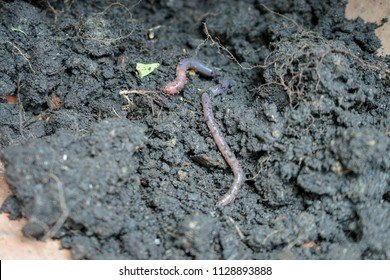
Think of earthworms as the unsung heroes of your garden. They might seem small and unassuming, but they’re doing big things. When you see a garden flourishing, there’s a good chance worms are hard at work below. Let me explain how these wiggle worms go about improving soil fertility and why they matter so much to your gardening success.
What Do Earthworms Do?
Earthworms might just look like squiggly bits of life, but they play a crucial role in soil health. Essentially, they break down organic matter—things like dead leaves, grass clippings, and even kitchen scraps—turning them into compost. As they munch through this material, they digest it, and the result is a rich, nutrient-dense substance known as *worm castings*.
You might be asking, “What’s so special about worm castings?” Well, they’re full of nutrients like nitrogen, phosphorus, and potassium, which are essential for plant growth. They also improve the soil structure, making it more conducive for roots to grow. So, if you want your plants to be happy and healthy, you want lots of these little guys hanging out in your garden.
In addition to breaking down organic material, earthworms aerate the soil. As they burrow through, they create tiny channels that allow air and water to penetrate deeper into the ground. Think of it as giving your garden a breath of fresh air, enabling roots to access what they need to flourish.
The Benefits of Worm Castings
Worm castings are like gold in the gardening world. Here’s why—they’re rich in nutrients and beneficial microbes. When you mix worm castings into your soil, you’re giving your plants a multi-vitamin boost.
- Nutrient-Rich: Worm castings contain more nutrients than regular compost, and they release them slowly, which means your plants can access them over time.
- Microbial Activity: They also introduce beneficial microbes into the soil. These microbes can help break down nutrients even further, making them more available to plants.
- Improved Soil Structure: The texture of worm castings is fluffy and crumbly, which improves soil aeration and helps retain moisture.
Think of it this way—adding worm castings to your garden is like upgrading to premium soil. It helps your plants not just survive but truly thrive.
How to Encourage Earthworms in Your Garden
If you want to reap the benefits of earthworms, it’s essential to create an environment where they can thrive. Luckily, it’s pretty easy! Here are some things you can do to make your garden a worm-friendly haven:
- Add Organic Matter: Regularly add compost or mulched leaves to your garden. Worms love this stuff and will flock to it, breaking it down into nutrient-rich materials.
- Avoid Chemical Pesticides: Chemicals can be harmful to earthworms. Instead, use natural pest control methods to keep your garden healthy.
- Keep the Soil Moist: Earthworms thrive in damp soil. Water your garden regularly but avoid over-watering. A moist environment is perfect for them.
By making these small adjustments, you’re inviting earthworms into your garden, where they can get busy improving soil fertility.
How Earthworms Aerate the Soil
Besides breaking down organic matter, earthworms also play an essential role in aeration. When they burrow through the soil, they create tiny tunnels. These tunnels are not just random worm highways; they allow air and water to move freely throughout the soil.
Think of it like a sponge. If you have a sponge with tiny holes, it soaks up water better than a solid block. Similarly, soil with good aeration can retain moisture and nutrients much better. This means your plants get what they need right at their roots.
The process also helps prevent soil compaction, which can be a problem in gardens. Compacted soil makes it hard for roots to grow and for water to penetrate. With earthworms on the job, you’re ensuring your soil remains very much alive and effective.
How to Use Earthworms in Your Garden
You might be curious about how to introduce earthworms to your garden if there aren’t many around. A simple way to do this is by setting up a worm bin. Here’s a quick guide to get you started:
1. Find a Container: Use a plastic or wooden bin with drainage holes. A size of about 2 feet by 3 feet is perfect.
2. Prepare Bedding: Fill the bin with damp newspaper strips, shredded cardboard, or coconut coir. This gives them a cozy home.
3. Add Worms: Red wigglers are the best for composting. You can buy them online or at garden stores.
4. Feed Them Right: Add kitchen scraps like vegetable peels, coffee grounds, and eggshells. Avoid meat and dairy—worms prefer plant matter.
5. Maintain the Bin: Keep the bedding moist and check for any unwanted pests.
Once your worm bin is thriving, you can add the worm castings to your garden soil, giving a boost to your plants.
The Bottom Line: Earthworms are Essential
In the grand scheme of gardening, earthworms are like nature’s little heroes. They improve soil fertility through their natural processes, enriching the soil with nutrients and aerating it for better water and air penetration.
Think about it—when you take care of your soil, you’re also taking care of your plants. And when you have healthy plants, you enjoy a lush, vibrant garden. So, if you’re serious about gardening, consider nature’s little recyclers. Invite them into your space, and watch your garden transform into a thriving ecosystem.
In the end, a little attention to the underground world of earthworms can lead to a bountiful garden. Happy gardening!
